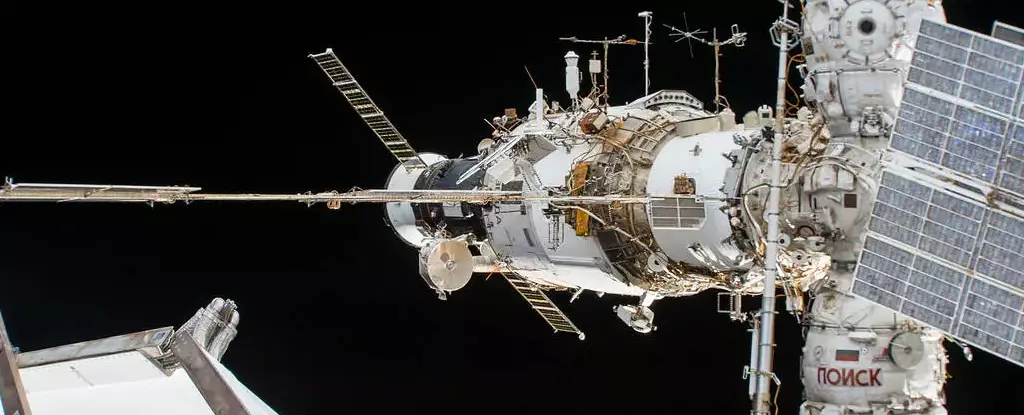The Russian segment of the International Space Station (ISS) experienced its third coolant leak in less than a year, raising concerns about the reliability of the country’s space program. While officials have reassured that the crew members are not in danger, the consecutive leaks have sparked doubts about the overall integrity of the Russian space systems. This article examines the recent coolant leak, explores possible causes, and highlights the implications for the Russian space sector.
The latest incident occurred when flakes of frozen coolant were observed spraying into space during a live feed of the orbital lab provided by NASA. The leak originated from the external backup radiator circuit of the Nauka module, which was delivered to the station in 2012. Despite the leak, temperatures in the affected unit remained normal, and Roscosmos, the Russian space agency, stated that neither the crew nor the station were at risk.
The recent coolant leak marks the third instance in less than a year that the Russian side of the ISS has experienced this issue. In December of the previous year, NASA TV captured images of white particles resembling snowflakes streaming out of a docked Soyuz MS-22 spacecraft for several hours. Speculations regarding the cause centered around the possibility of a micro meteorite strike. Similarly, in mid-February, the Russian Progress MS-21 cargo ship, which had been docked to the ISS, also faced a coolant leak. The recurrence of these leaks suggests a systemic issue rather than isolated incidents.
The consecutive coolant leaks have roused concerns and led to speculations about the root cause. Jonathan McDowell, a space analyst, points to the common thread of multiple coolant systems failing, suggesting the possibility of a systematic problem. McDowell speculates that a subcontractor company may be at fault, emphasizing the declining reliability of Russian space systems. This, coupled with their failed Moon probe in August, raises doubts about the country’s space program.
The Russian space sector, once a source of pride for the country, has been grappling with numerous challenges in recent years. A lack of funding, failures in missions, and corruption scandals have plagued the industry. These issues, combined with the ongoing conflict with Ukraine and the subsequent international sanctions, have added to the difficulties faced by the Russian space program. The ISS remains one of the few remaining areas of cooperation between Moscow and Washington, making the reliability of the Russian space systems crucial.
The detection of a third coolant leak on the Russian segment of the ISS raises questions about the reliability of the country’s space program. While the crew members were not in immediate danger, the consecutive leaks indicate a systemic problem. The challenges faced by the Russian space sector, including funding limitations and mission failures, contribute to the erosion of confidence in their space systems. The incident underscores the need for a thorough investigation to identify the root cause and address the reliability concerns, ensuring the safety and success of future missions.


Leave a Reply